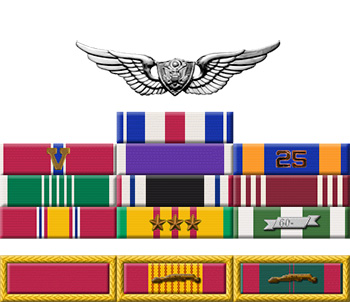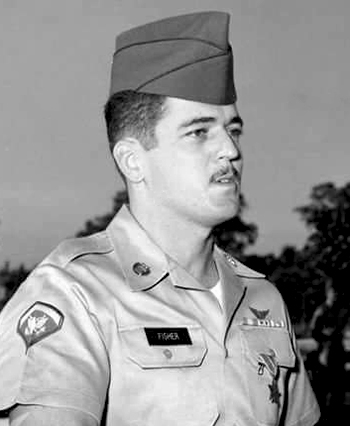
|
John B. "Jack" Fisher |
 |
|||
| Rank, Service | ||||
Specialist 5th Class E-5, U.S. Army |
||||
| Veteran of: | ||||
|
||||
| Tribute: | ||||
Jack Fisher was born in 1945 in Ocala, Florida. He enlisted in the U.S. Army on April 18, 1966, completed Basic Training at Fort Jackson, South Carolina, in June 1966, and then attended Advanced Individual Training as a Morse Intercept Operator at Fort Devens, Massachusetts, from August to December 1966. His first assignment was as an Airborne Morse Intercept Operator with the 337th Radio Research Company of the 303rd Radio Research Battalion in South Vietnam from January to August 1967, followed by service as an Airborne Morse Intercept Operator with the 146th Aviation Company (Radio Research) of the 224th Aviation Battalion (Radio Research) in South Vietnam from August 1967 until the RU-1A Otter he was flying aboard was shot down over South Vietnam and he was taken as a Prisoner of War on February 12, 1969. After spending 28 days in captivity, SP5 Fisher was released by his captors on March 11, 1969, and made it back to friendly lines the next day. He was briefly hospitalized to recover from his injuries at Hunter Army Hospital at Hunter Army Air Field, Georgia, and at the Naval Hospital in Jacksonville, Florida, before serving as a Morse Intercept Operator at the U.S. Army Security Agency Field Station at Homestead AFB, Florida, from July 1969 until he left active duty on March 27, 1970. SP5 Fisher was honorably discharged from the U.S. Army Reserve on April 17, 1972. |
||||
|
||||

